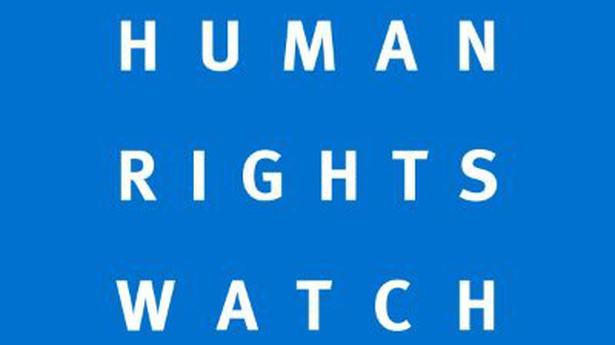
New York-based Human Rights Watch says Sri Lanka harassed, intimidated protesters
The Hindu
“The Sri Lankan government's crackdown on peaceful dissent appears to be a misguided and unlawful attempt to divert attention from the need to address the country's urgent economic crisis,” said Meenakshi Ganguly, Human Rights Watch's South Asia director.
An international human rights group says Sri Lanka's government is using emergency laws to harass and arbitrarily detain protesters who are seeking political reform and accountability amid the island country's economic crisis.
New York-based Human Rights Watch said in a statement on August 3 that Sri Lanka's military sought to curtail protests through intimidation, surveillance and arbitrary arrests of demonstrators, activists, lawyers and journalists since President Ranil Wickremesinghe took office last month.
Sri Lanka's Parliament approved a state of emergency and the decree gives the President the power to make regulations in the interest of public security and order.
Mr. Wickremesinghe, who had ordered arrests of protesters, has said that although the protests started peacefully, groups with political interests took over later and became violent, citing the burning of dozens of ruling party politicians' homes in May.
Sri Lankan civic activists concerned over ‘witch-hunt’ by state
Sri Lankans had been protesting for months over the country's economic crisis that has led to a severe shortage of many essential imported items such as medicines, fuel and cooking gas. Mr. Wickremesinghe's predecessor Gotabaya Rajapaksa fled the country after protesters stormed his official residence and also occupied many key state buildings including the President's office, Prime Minister's office and the Prime Minister's official residence. Mr. Wickremesinghe was elected by Parliament to complete Mr. Rajapaksa's term, which ends in 2024.











